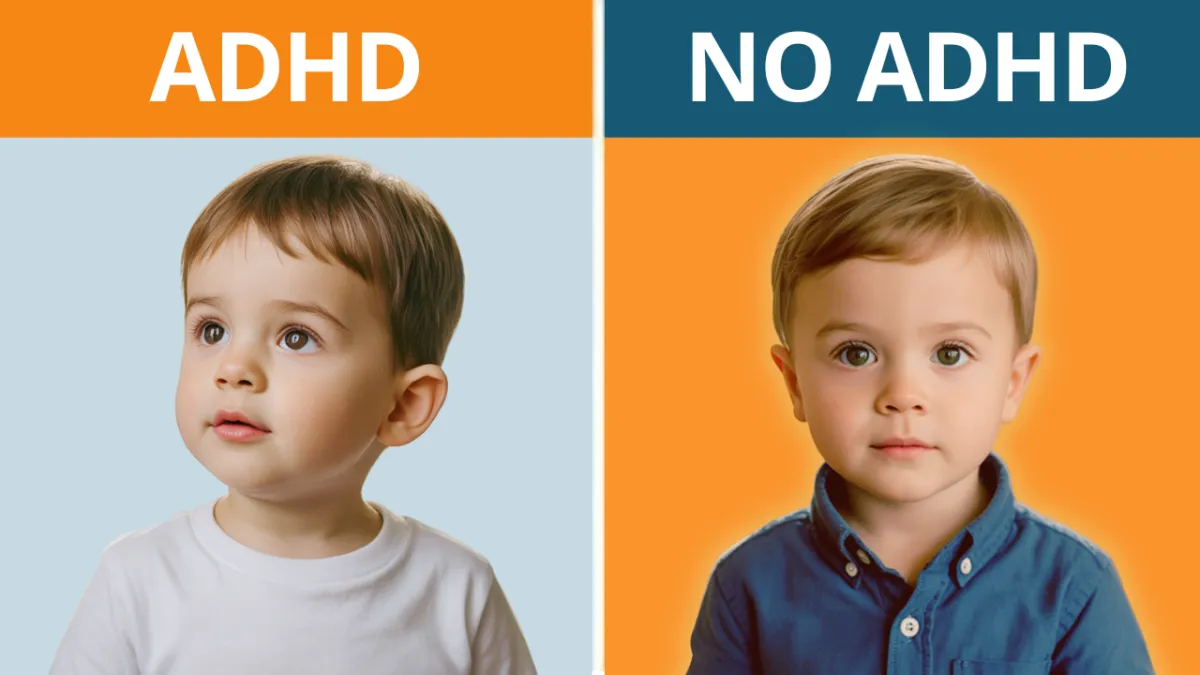
10 Subtle Signs Of ADHD Most Parents Miss


Early Red Flags to Watch For in Kids Ages 6 Months to 5 Years
If your child squirms, flips pages too fast, or walks away during story time, it might seem harmless. But it could also be one of the earliest signs of ADHD, especially if it happens consistently.
As a clinical psychologist, I work with families every day to identify early developmental concerns. Today, I’ll walk you through 10 subtle signs of ADHD that you can observe at home long before a formal diagnosis. Recognizing these patterns early can make a huge difference in your child’s academic, emotional, and social success.
Let’s dive in.
The First Subtle Sign of ADHD: Not Enjoying Story Time
Does your child struggle to sit through even one short board book?
By 6–9 months, they should begin showing interest in simple stories. If your child quickly loses focus, crawls away, or avoids books altogether, it may indicate difficulty with sustained attention, a core ADHD symptom.
The Second Subtle Sign: Inconsistent Response to Their Name
If your child doesn’t consistently respond when you call their name (even with normal hearing), it may reflect inconsistent attention regulation. They might seem "lost in their own world" or unusually spaced out.
The Third Subtle Sign: Sleep Struggles
Does your child take a long time to fall asleep, wake often, or still seem tired in the morning?
Sleep challenges, despite good routines, can point to underlying ADHD brain differences that interfere with settling down or staying asleep.
The Fourth Subtle Sign: Poor Time Estimation
Children with ADHD often struggle to grasp the passage of time, making transitions feel sudden even with warnings. If your child regularly melts down after “5 more minutes,” this could be why.
The Fifth Subtle Sign: Provocative Behavior During Calm Moments
Kids with ADHD may unconsciously seek stimulation. If your child frequently disrupts peaceful moments, poking siblings, interrupting, or causing small chaos, it’s often about impulse control, not defiance.
The Sixth Subtle Sign: Running Toward Danger
Impulsive running in unsafe settings (like parking lots) is often misread as boldness or fearlessness. In reality, it may reflect dangerous impulsivity, a less-discussed core ADHD symptom.
The Seventh Subtle Sign: Needing Multiple Reminders
If your child needs repeated prompts for simple, one-step tasks (like brushing teeth or putting on shoes), that could point to ADHD. Attention tends to wander before the task is complete.
The Eighth Subtle Sign: Struggles With Multi-Step Instructions
ADHD affects working memory. If your child forgets multi-step instructions or does steps out of order (like putting clothes in the wrong drawer or skipping parts), this could be a sign.
The Ninth Subtle Sign: Frequent Interruptions
Do you get interrupted 10 times during a 5-minute phone call? Kids with ADHD often can’t hold thoughts or wait their turn, especially during adult conversations.
The Tenth Subtle Sign: Sensitivity to Criticism
Even gentle corrections can trigger big emotional reactions in kids with ADHD, like meltdowns or self-deprecating comments. This may reflect rejection sensitivity, common in ADHD.
A Reassuring Note for Parents
Spotting one or two of these signs doesn’t mean your child has ADHD. All kids do some of these things sometimes. What matters is frequency, intensity, and whether the behaviors interfere with daily life.
If several signs resonate with you, it’s worth discussing with your pediatrician. Early support can make a world of difference.
Want to Know What to Do Next?
Traditional discipline strategies often don’t work well for kids with ADHD. The parenting style that works best? A balanced approach rooted in structure, empathy, and connection.
🎯 Click here to watch my free Parenting Workshop
You’ll learn how to guide your child’s behavior while building confidence in yourself as a parent.
